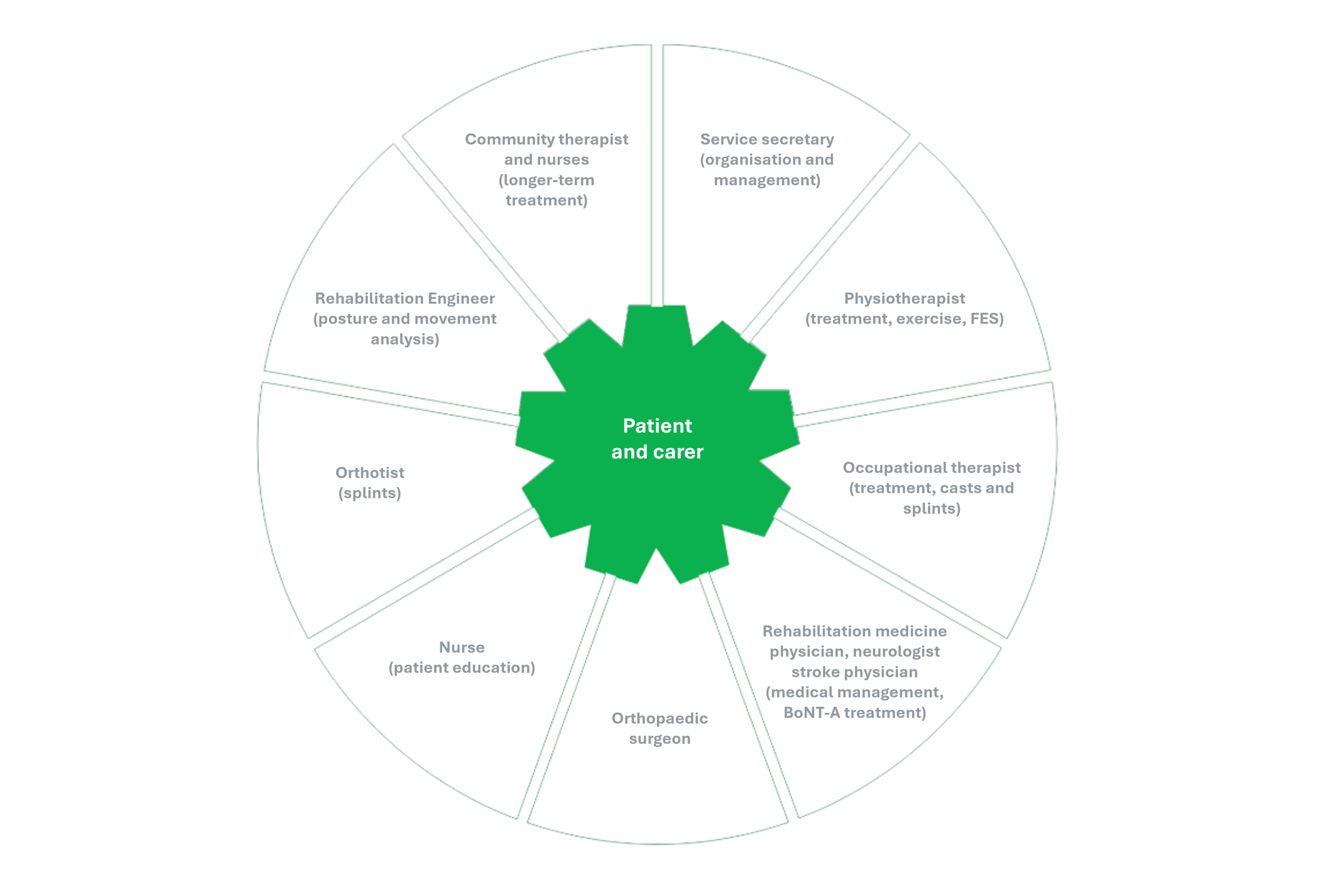Spasticity is a motor disorder characterised by a velocity-dependent increase in muscle tone.1 It is a disabling condition that, if left untreated, can lead to a host of serious locoregional complications and health-related quality of life issues.2–4
There are three main disabling features of adult spasticity: muscle overactivity (reduced ability to relax), soft tissue contracture (muscle shortening and joint retraction) and paresis (reduced voluntary recruitment of skeletal motor units).5




